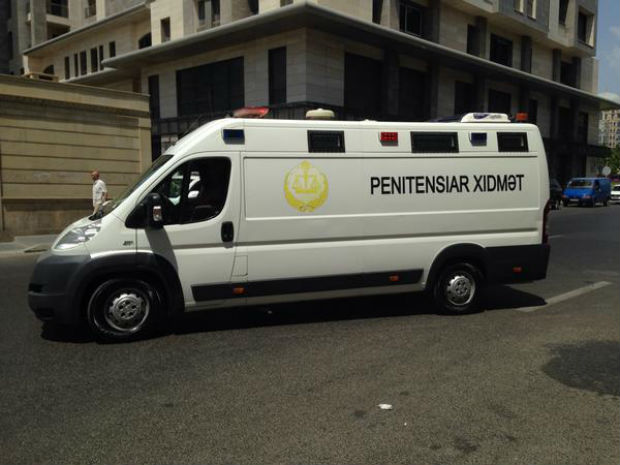16 Jul 2015 | Campaigns, mobile, Statements
 Index on Censorship is one of 21 members of the Arts Rights Justice network who have signed the following statement:
Index on Censorship is one of 21 members of the Arts Rights Justice network who have signed the following statement:
Two representations of a theatre performance entitled “b7al b7al”, 4 and 5 July 2015 in Tangiers, Morocco have been forbidden again following a similar incident in Rabat on 13 June. Although the organisers had fully respected all administrative procedures, they were informed on 4 July (15 minutes before the performance after all technical installations had been prepared and the actors were ready), that the performance couldn’t take place. The second representation the following day was also forbidden.
This ban takes place at a time when the migrant communities of the city of Tangiers are living violent, racist events that represent a complete denial of basic human rights and values.
The performance b7al b7al relieves tension and strengthens dialogue regarding migration between Morocco and Sub-Saharian Africa. It is regrettable that such a performance be forbidden. It offers a place for migrants from Sub-Saharian regions to express themselves, and to make the public aware of the problems they face. It also helps prevent stereotypes and prejudices linked to racism.
The public space should be accessible to cultural actors, artists and organisations representing civil society and should be free of constraints. It is here that art gets closer to citizens, allowing for debates to take place openly on highly relevant issues for society.
Public authorities’ role is to facilitate access and insure security of artists and citizens, respecting the freedom of artistic expression guaranteed by the Moroccan Constitution.
B7al b7al is part of Mix City, a project of Association Racines, in partnership with Theatre of the Oppressed in Casablanca and Minority Globe, also in collaboration with the association Visa Without Frontiers,Tangiers. Mix City is part of “Diversity, Drama and Development” co-funded by the European Commission in the framework of Medculture, also supported by the Prince Claus Fund for Culture and Development, the Swedish Foundation and the Heinrich Böll Foundation. It was set up by Minority Rights Group International, Civic Forum Institute and Andalus Institute.
15 Jul 2015 | Azerbaijan, Azerbaijan News, Europe and Central Asia, mobile, News and features
It should have been a happy day for Leyla and Arif Yunus. On 15 July, the couple — together for 37 years — saw each other for the first time in 11 months. The circumstances of their reunion, however, put a damper on what would otherwise have been a joyous occasion: it took place inside a glass cage, in a cramped courtroom in Baku, Azerbaijan. The human rights activists are on trial, on charges widely recognised to be politically motivated.
Initially scheduled for 13 July, but pushed back for unknown reasons, the Yunus’s pre-trial hearing came almost a year after they were first detained within days of each other in July and August of 2014. Leyla, director of the Peace and Democracy Institute, and Arif, a historian and researcher, have since been accused of an array of crimes, ranging from tax evasion and illegal business activities, to treason.
In the courtroom some 30 places were allocated to members of the public, who were stripped of their phones at the start of proceedings. Representatives from the German and EU embassies, as well as local journalists and NGOs were in attendance, according to Kati Piri, a Dutch member of the European Parliament who travelled to Baku for the trial. She estimated that more than half of the the crowd that had shown up, including other embassy delegations, did not manage to get into the room.
Piri told Index on Censorship that she was there to show support and solidarity for the couple, and that the European Parliament and the international community had not forgotten them and will continue to exert pressure.
“Even though the spotlight is no longer on Baku for the games, it will continue to be on when it comes to human right abuses,” she said, referring to the inaugural European Games, hosted with much fanfare by the Azerbaijani capital just weeks ago.
Proceedings lasted some 2.5 hours, and according to reports from inside the court, both Leyla and Arif looked pale and thinner. Leyla’s struggles with diabetes and Hepatitis C in prison have been well documented, but during the hearing she expressed worry in particular about her husband. Piri said Arif looked “much less strong and vivid than Leyla”. Their daughter Dinara told media in June that both her parents’ health has deteriorated since their arrest.

The van transporting Leyla and Arif Yunus (Photo: Kati Piri)
An appeal to the judges to allow Leyla to serve house arrest instead of imprisonment, was denied — as was every other motion filed by the defence, including a call for the case to be dropped altogether and a request that the couple be allowed to sit with their attorneys instead of the in the glass cages.
But Piri said Leyla seemed mentally very strong: “Mentally, they haven’t been able to break her.” Leyla took the opportunity, during a break in proceedings, to address the people in attendance, and according to Contact.az, she refused to stay silent even when the judge ignored her request to speak. “You are depriving me of the right to speak… I know that it is a false trial, but you have to give me an opportunity to speak…” she reportedly said.
The arrest of the couple in July and August 2014, was the first move in a crackdown by the regime of President Ilham Aliyvev, which has seen some of Azerbaijan’s most celebrated critical and independent voices arrested and sentenced on spurious, and frequently suspiciously similar charges, often relating to white-collar crime. Over the past few months, pro-democracy campaigner Rasul Jafarov has been handed down a 6.5 year sentence, while human rights lawyer Intigam Aliyev and journalist Seymur Hezi have been jailed for 7.5 and five years respectively. Award-winning investigative reporter Khadija Ismayilova is due in court on 22 July.
Leyla and Arif Yunus’s next hearing is scheduled for 27 July. While Piri remains hopeful of a positive outcome for the couple, she is afraid “it will not depend on the judges, but on politicians what will happen in this case”.
This article was posted on 15 July 2015 at indexoncensorship.org
14 Jul 2015 | Azerbaijan, Azerbaijan News, Azerbaijan Statements, mobile, News and features
In a letter to Azerbaijani President Ilham Aliyev, independent lawyers, barristers or attorneys-at-law, expressed concern over the sentencing of their colleague, human rights lawyer Intigam Aliyev: “We call upon you, Mr President, to immediately and unconditionally release Intigam Aliyev and rehabilitate his civil and political rights.”
After six months in detention on spurious charges Intigam Aliyev was sentenced to seven and a half years in prison.
“We identify with Intigam Aliyev”, the lawyers wrote, “because we believe everybody should have a right to a fair trial, just as he does. Yet, Intigam Aliyev’s trial was marred by procedural irregularities and violations of the right to a public hearing and the right to access the files and documents of the case.” In addition, Intigam Aliyev’s attorney managed to prove that he was not guilty of implementing projects without registration, which he was charged with.
All 95 lawyers expressed their sympathy for Intigam Aliyev, as a unique lawyer. Not only is he a teacher for a generation of young Azerbaijanis, but he is also an expert of the European legal system, one of the first Azerbaijani lawyers to
utilize the European Court of Human Rights and the regional tutor in the Human Rights Education for Legal Professionals (HELP) programme of the Council of Europe.
In the letter the lawyers furter identified with Intigam Aliyev: “For all of us, being a lawyer is a unique privilege. We identify with Intigam Aliyev because in Azerbaijan, any of us could be arrested simply for doing the same work as he did.”
The lawyers included colleagues of Intigam Aliyev, from various Eastern European countries, from within the Human Rights House Network project International Law in Advocacy, of which he is the national expert in Azerbaijan. The signing lawyers also included lawyers invested in human rights, from the United States and Canada, Egypt or Iran, as well as western European countries.
Florian Irminger, head of advocacy at the Human Rights House Foundation, underlines the importance of supporting human rights defenders in Azerbaijan: “The imprisonment of Intigam Aliyev is part of a systematic crackdown on human rights in the country. Arbitrary detention has been used to silence critical voices in Azerbaijan for years, whilst at the same time they exhibit a modern state through major international events. This letter and attention from around 100 lawyers from three continents witness that the outside world are not fooled by the promotion.”
In their letter, the lawyers highlight that the detention conditions of Intigam Aliyev have an impact on his already poor health:
“He suffers from severe chronic headaches in addition to nerve pain and has reportedly been denied of appropriate health care to date.” In their letter, the lawyers urge the Azerbaijani authorities to respect “basic humanitarian principles” and ensure that Intigam Aliyev is receiving “complete and necessary treatment for all medical concerns.”
14 Jul 2015 | Bahrain, Campaigns, Middle East and North Africa, mobile

Nabeel Rajab during a protest in London in September (Photo: Milana Knezevic)
Index welcomes King Hamad of Bahrain’s pardoning of human rights defender Nabeel Rajab, who was in the third month of a six-month sentence connected to his expressing an opinion in a tweet. According to Bahrain’s official news agency, Rajab was pardoned over fears for his health.
However, the country must do more to respect the freedom of expression of its citizens by dropping all charges against political prisoners whose so-called crimes have been to campaign for greater democratic rights, or expressing opinions.
“This action by the king undoes a grave miscarriage of justice. But Rajab is just one of the campaigners that have been targeted with judicial harassment by the Bahraini government. Index calls on King Hamad to pardon all the political prisoners currently serving sentences on spurious charges,” Index on Censorship CEO Jodie Ginsberg said.
Rajab is among the Gulf region’s most well-known human rights activists. He is the president of the Index award-winning Bahrain Center for Human Rights (BCHR), and a member of the advisory committee of the Human Rights Watch Middle East division. Since the Bahraini uprising of 2011, he has been arrested on numerous occasions and had his house tear-gassed for leading protests in which he and others voiced criticism of the Bahraini government.
Having been imprisoned between August 2012 and May 2014, Rajab was once again arrested in October 2014 and charged with “insulting a public institution”. His crime related to tweets in which he alleged that some Bahraini soldiers may have defected to the Islamic State, referring to Bahraini institutions as “ideological incubators”. In May, his six-month prison sentence was upheld.
This article was posted on 14 July 2015 at indexoncensorship.org
 Index on Censorship is one of 21 members of the Arts Rights Justice network who have signed the following statement:
Index on Censorship is one of 21 members of the Arts Rights Justice network who have signed the following statement:

